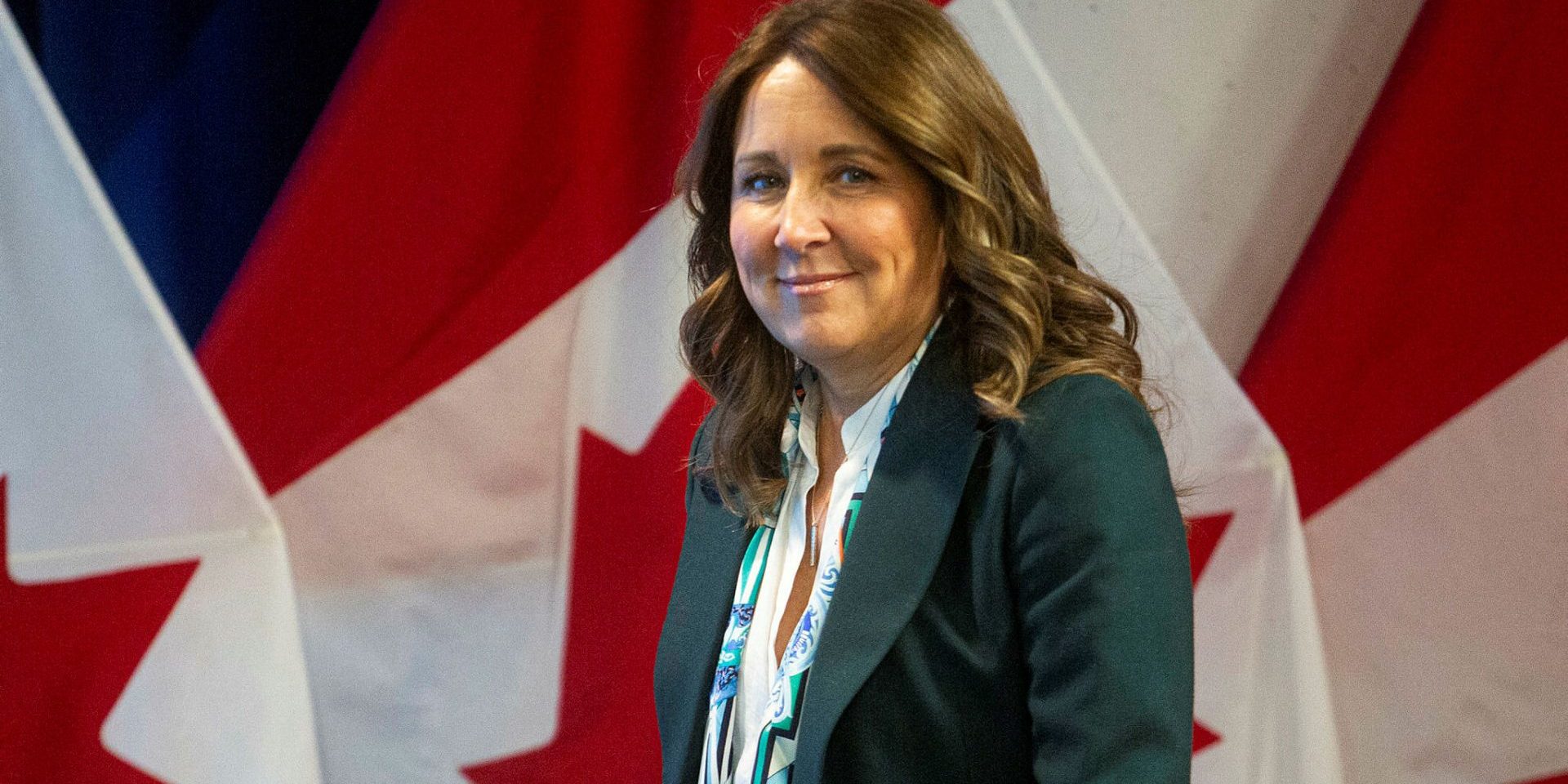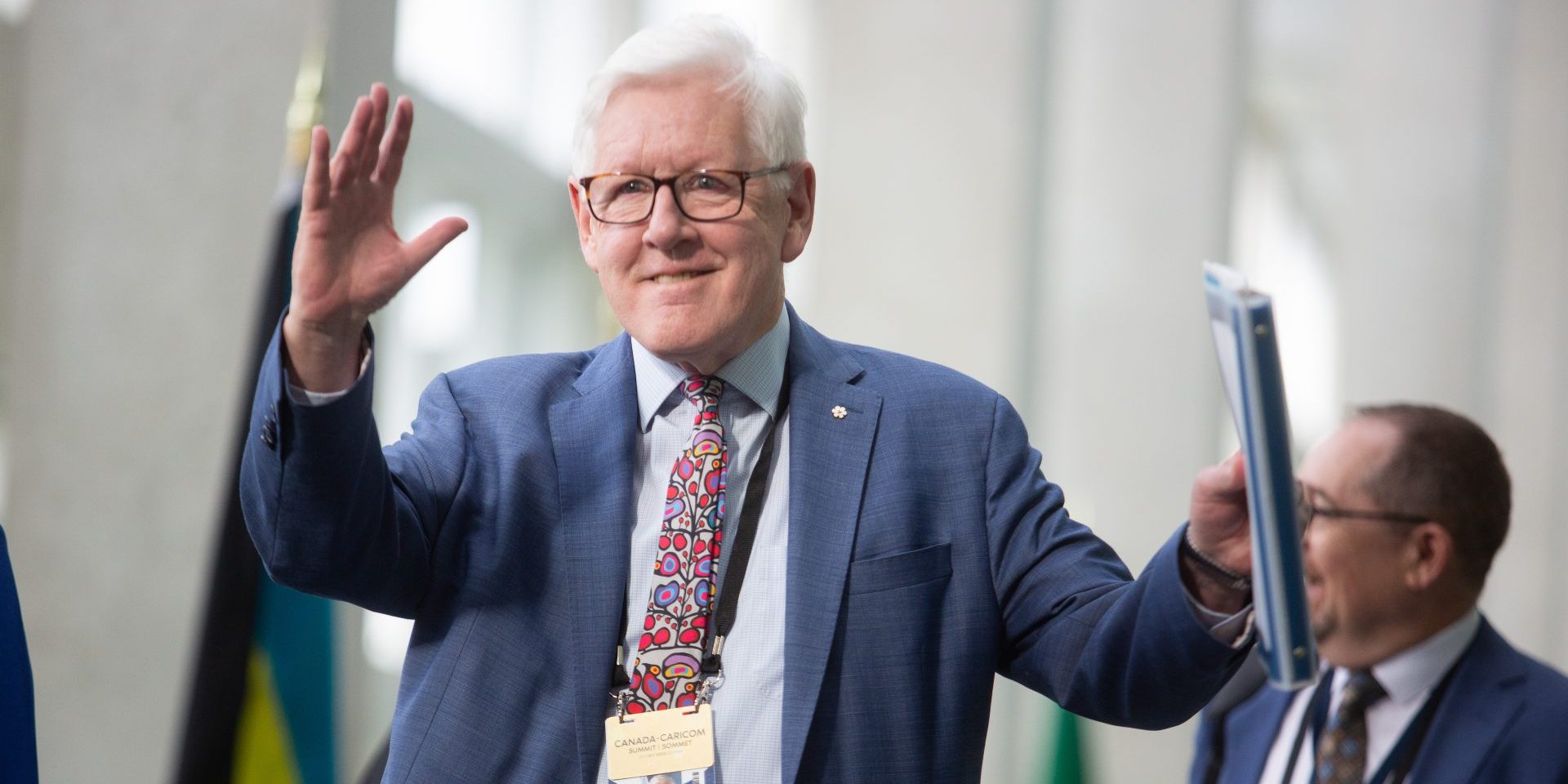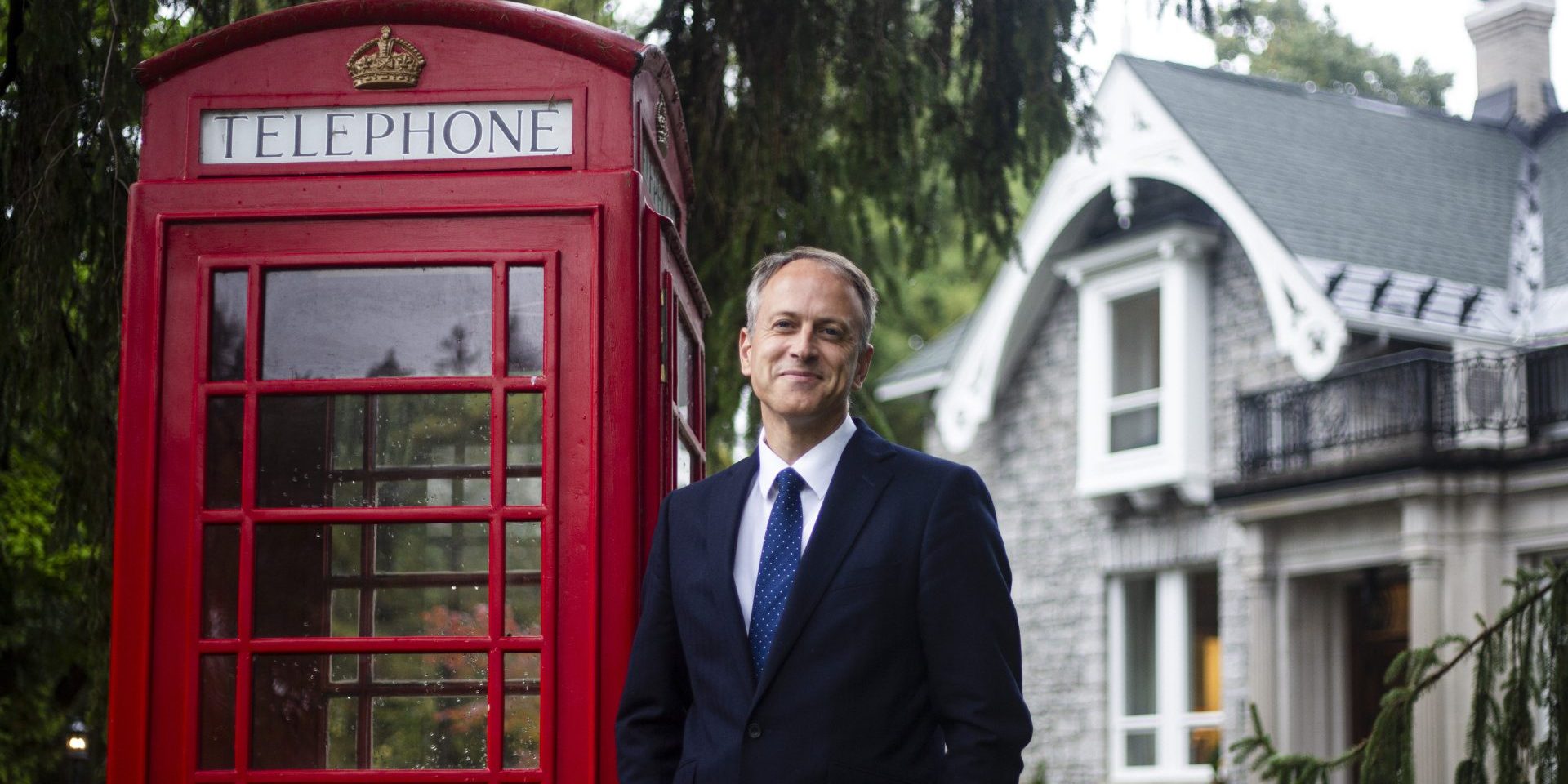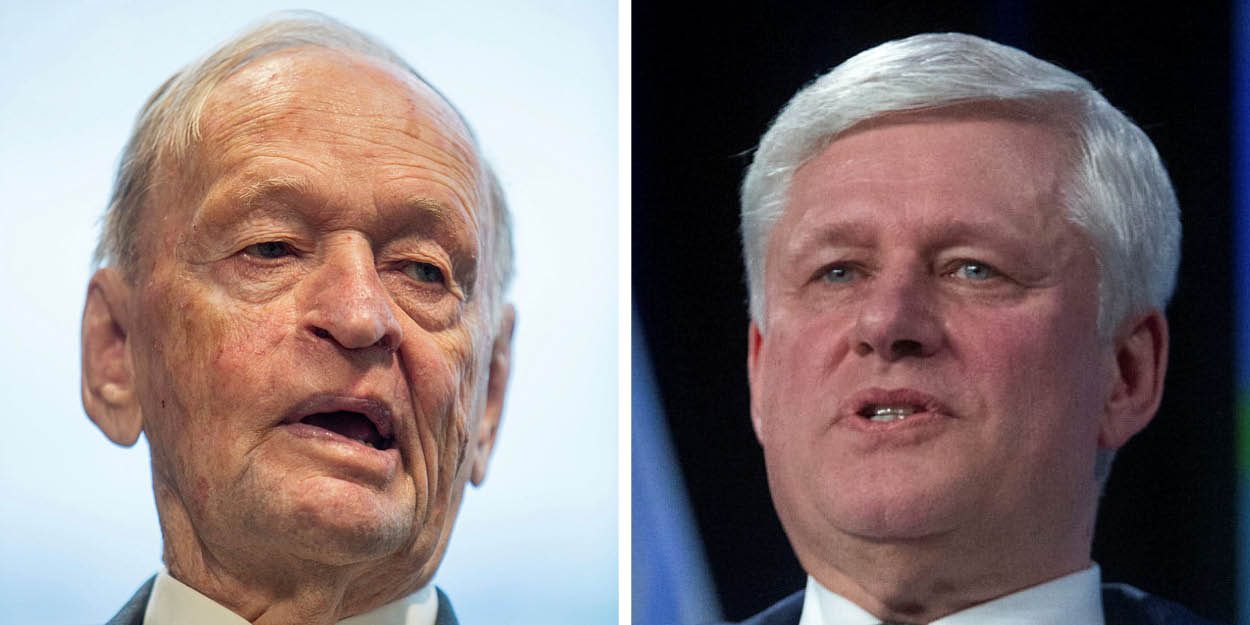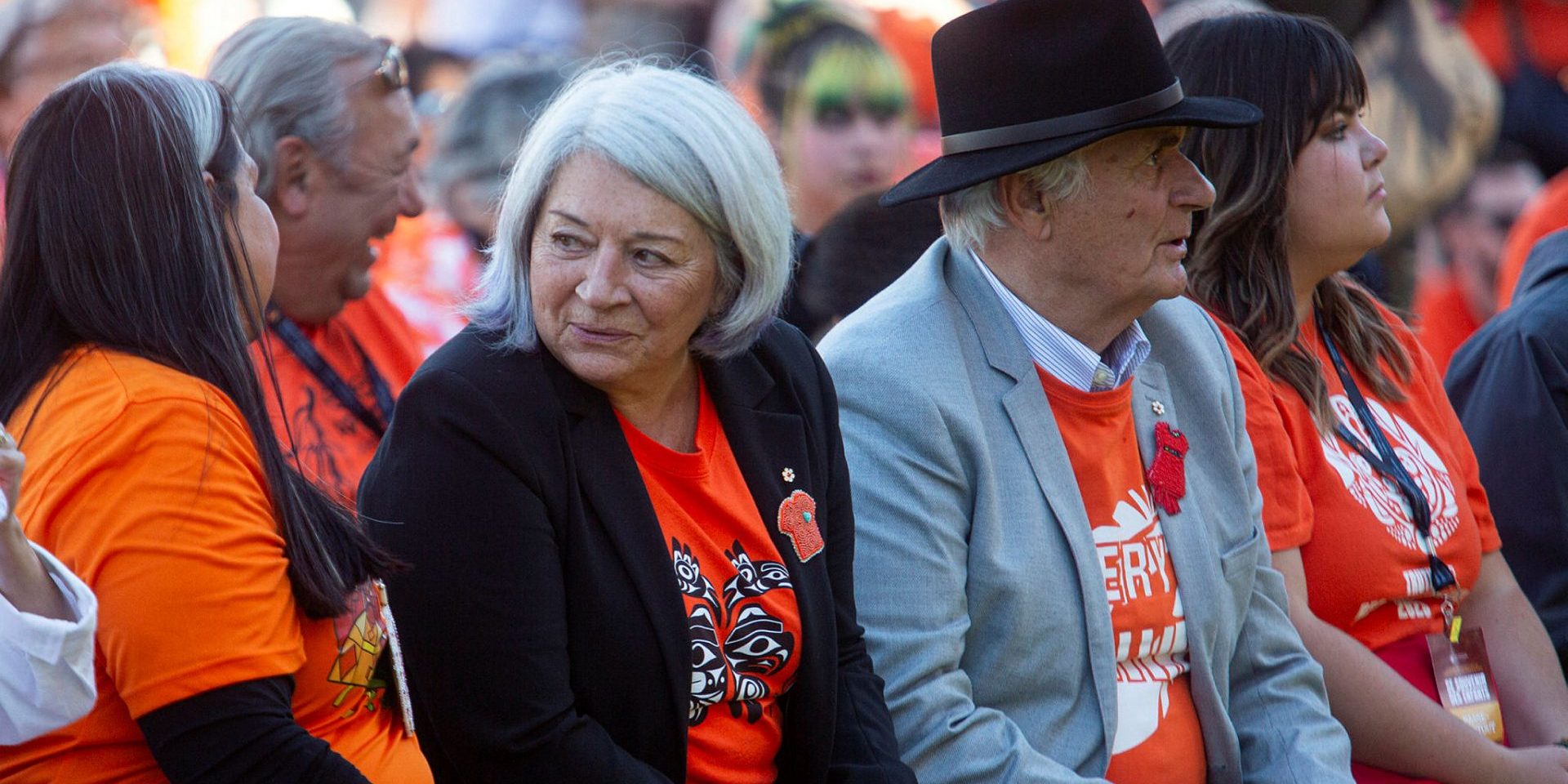Books, Big Ideas, Q&As
Q&A | The Tory path to finding ‘a new narrative’ with Gerry Nicholls
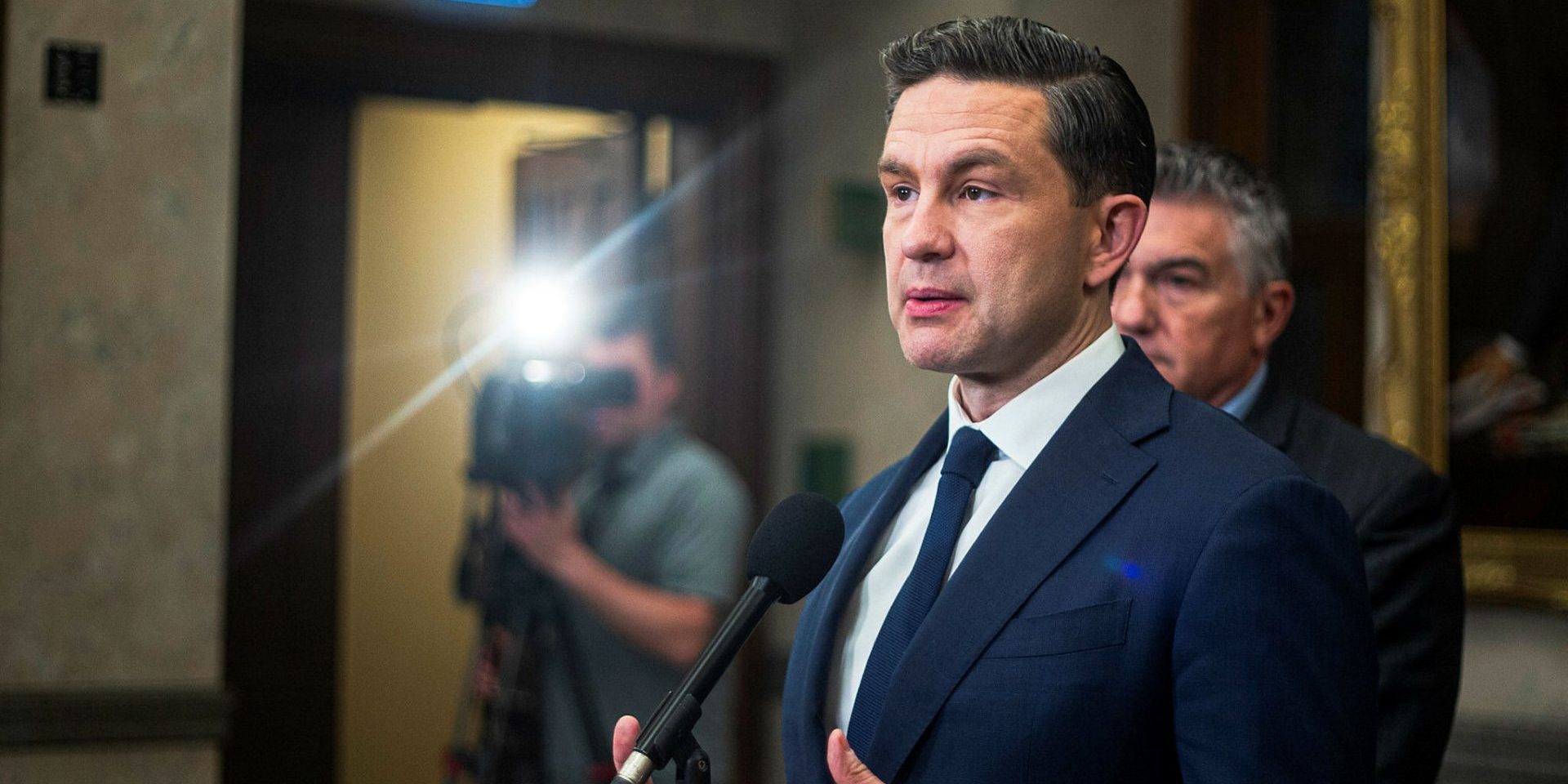
When Pierre Poilievre returns to the House of Commons this fall he’ll have to “walk a fine line” opposite his new opponent Mark Carney, says conservative strategist Gerry Nicholls.
The Liberals are “moving to the right” under their new prime minister, with Carney operating as “a small c conservative” in many ways, and “taking the oxygen out of the room” for the Conservative leader, said Nicholls.
“Poilievre has to be smart about what he does in terms of how he co-operates with the Liberal Party,” said Nicholls on a recent episode on The Hot Room podcast.
The Conservatives struck gold with their “axe the tax” messaging versus the Justin Trudeau Liberals, but they will need to pivot and “find a new narrative” that makes the Carney Liberals vulnerable, said Nicholls.
“The danger [Poilievre] faces, of course, is that Carney showed himself quite willingly to sacrifice Liberal policies if he thinks it’s hurting him politically. He scrapped the carbon tax for that reason.”
The following interview has been edited for length, style, and clarity. Listen to that episode for the full interview.
Poilievre collected about 80 per cent of the vote [in Battle River-Crowfoot], which was about the same that Damien Kurek got for the Conservatives in the spring. What are your thoughts on the byelection, if any?
“Pierre has to be happy with the results. He had to win it with a landslide. As you said, he got about 80 per cent of the vote. If he had done mediocre and still won, I think that would have raised a lot of eyebrows about the future of his leadership. He needed to win by a landslide, and he did so I think that gives him some momentum now heading into the next challenge he has to face. But I think right now, he’s got to be pretty happy with what’s happening.”
How do you think he should approach these next few months? The House of Commons returns in September. He’ll be back as leader of the opposition, facing off across from Carney, but he’s also got a Conservative Party leadership review coming up in January. So he’s got to speak to the public at large but also specifically to that core of the party that’s going to be deciding his future in January.
“I think he has to just, you know, be himself. Pierre has to be Pierre. If he tries to change who he is, I think that might risk alienating the base. And I think right now the base is happy with him. The history for the Conservative Party over the last decade or so has been to be very impatient with their leaders. They lose one election, they’re out. This is what happened to Andrew Scheer. This is what happened to Erin O’Toole. But I think Poiievre is in a better position than they are precisely because he has, I think, support within the base of the party, which maybe they lacked. That’s pretty safe for him.
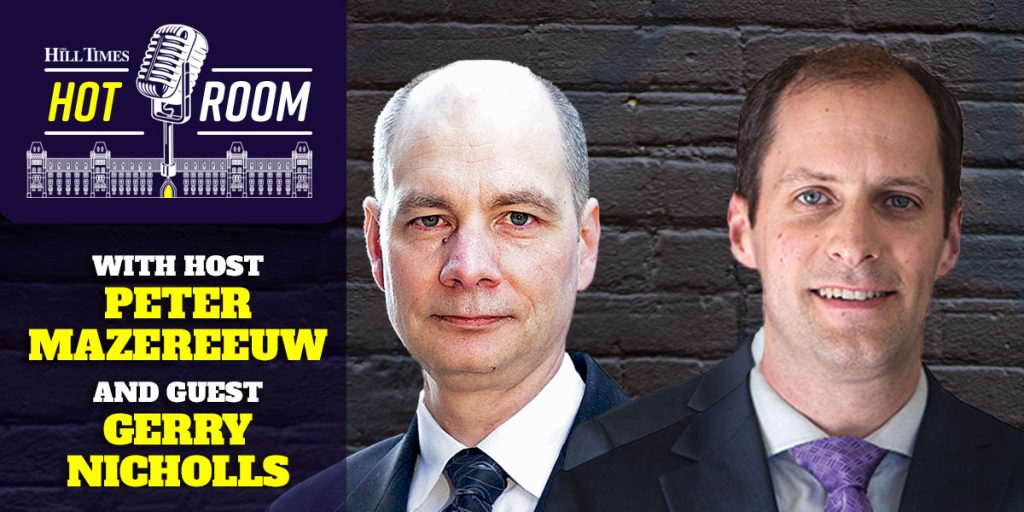
“He still has to be aggressive in the House of Commons. I still think he has to go after Carney. He still has to, you know, push Conservative talking points. So I think overall, you know, we’re going to see this more or less the same Pierre in the next few months as we saw the last few years.”
Let’s talk about how that might translate into the House of Commons. Under Justin Trudeau, the Conservatives basically used every trick in the rule book to jam up and obstruct the progress of anything the government was trying to do in Parliament. Then Mark Carney came in—different leader, different circumstances—and we saw the Conservatives actually help his government to fast track the Building Canada Act through the House of Commons. Carney’s coming in with a much more ‘small c’ conservative agenda.
How does that change the way that Poilievre might approach his strategy in the House?
“I think this is a real problem for Poilievre. Actually, the fact that, as you said, Carney seems to be acting like a small c conservative is kind of taking the oxygen out of the room for Pierre Poilievre. This is kind of a different situation than he faced with Trudeau, who is like, Mr. Left Wing, and easy to take shots at. It’s not the case with Carney.
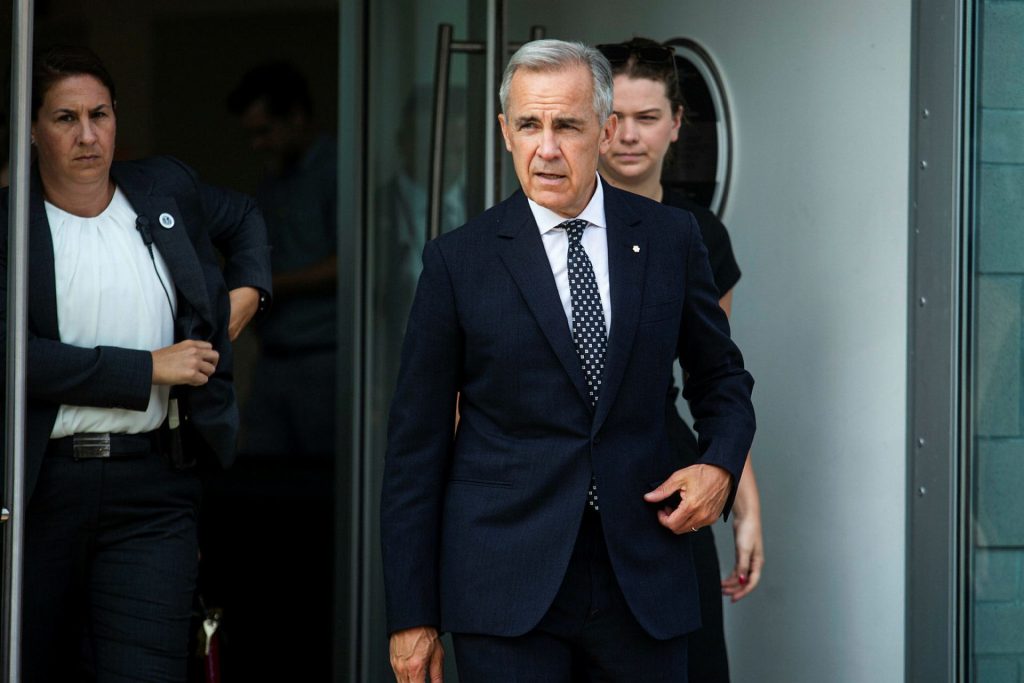
“The real strategic problem for the Conservative Party—and this is going to sound a little bit strange—is the weak left in this country, politically speaking. The NDP basically got destroyed in the last federal election. They haven’t got a leader. Their party must be completely demoralized, and they seem directionless. So Mark Carney kind of looks at this political battlefield, and he says, ‘You know what? I don’t have any threats on my left wing flank. I can move to the right without any problems, without anybody attacking me.’ And I think that’s exactly what Carney’s doing. He is moving to the right. This is a problem for Poilievre. For him to really catch fire, he needs a stronger left wing in this country. He needs the NDP to kind of pick up their game and start attacking Carney from the left. Otherwise it’s going to be really difficult for Pierre Poilievre and the Conservatives to get their message out.”
He’ll have to pick his issues. It would look silly to obstruct the progress of government policies that are more or less what he’s been calling for this whole time, right?
“Yeah, exactly. And I think what he has to do is try to turn this into sort of a strategic advantage for himself. He’s got to say something like, ‘yeah, Carney is doing what I want to do. He’s acting like a Conservative. So I’m going to support this thing.’ And I think that might have the effect of triggering the left right. It might get people in the left wing of the Liberal Party to start saying, ‘Hey, what’s going on here?’ It might help resurrect the NDP, ‘Look, we need a strong left in this country, because even Poilievre likes Carney’s policies.’ Poilievre has to be smart about what he does in terms of how he co-operates with the Liberal Party. He has to try to turn it into a little bit of a political gain for himself. Same time, he can’t be seen as being too co-operative with the Liberals, because that might anger his own supporters. So he’s gotta sort of walk a fine line when it comes to how to deal with Carney strategically.”
What are the issues that Poilievre can still go after Carney on?
“I can tell you right now, the Conservatives are polling like crazy. They’re trying to find the answer to that question. What is Carney not doing that the Canadian public wants him to do? And I’m not sure what the answer is to that question. It might be something about immigration. Perhaps he has to be tougher on immigration. Perhaps it has to be something cultural. I don’t know, but this is something the Conservatives gotta find. They have to find a new narrative. Because the narrative they use against Justin Trudeau isn’t in play anymore. They have to come up with a new script. And that’s what polling is for. They have to ask Canadians, ‘what do you care about’ and ‘what do you care about that aligns with our own philosophical viewpoints?’”
Poilievre has promised to campaign against this electric vehicles mandate. So maybe that’s something that they have found in their polling.
“Poilievre struck gold with the carbon tax, right? This ‘axe the tax.’ That was a big feather in his cap, that was an arrow in his quiver, and it worked very well for him in terms of turning people against Justin Trudeau’s Liberals. I think he’s saying, ‘This could be the next carbon tax.’ This could be the thing that I can use to bash the Liberals over the head. Because I think, for most people, they don’t want to be forced to buy an electric car. That’s an option that might scare a lot of people. So yeah, that could be an issue for them to sort of pick up and say, ‘we’re going to fight for the right to buy whatever car they want.’ And it’s all about freedom.
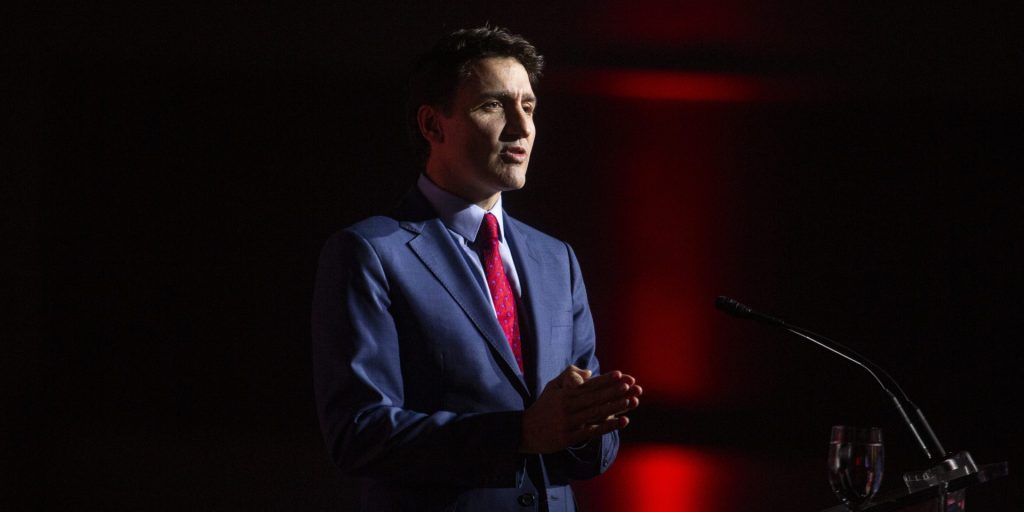
“The danger he faces, of course, is that Carney showed himself quite willingly to sacrifice Liberal policies if he thinks it’s hurting him politically. He scrapped the carbon tax for that reason. So if Poilievre manages to get some steam on this whole EV thing, Carney might say, ‘All right, I’m going to get rid of it.’”
We learned a couple weeks ago that Jenni Byrne—who has arguably been Poilievre’s top staffer and adviser—says she won’t be running the party’s next election campaign. She ran the last one, and of course, they lost. What does this tell you about what’s going on inside the party right now?
“I think a lot of Conservatives are disappointed, they’re disillusioned, they’re maybe even angry about what happened in the last election. So there had to be a sacrifice made. Poilievre had to go to the base and say, ‘look, we’ve made changes.’ For Jenni that meant she was the one who was singled out for that. And it’s unfortunate. I think she’s very smart. She’s a good political operator. And you could argue that a lot of things that happened in the last election really were outside her control. It’s just what I call one of the act of God situations where something happened that nobody could anticipate for, ie Donald Trump talking about annexing Canada. But you know what? That’s politics. It’s a tough business.”
You wrote recently that it would not be wise for Poilievre to start presenting himself as more of a pragmatist rather than an idealist now that he’s facing Carney—he’s not a left wing foil for Poilievre to contrast himself with. But why shouldn’t Poilievre move to the middle a little bit and match Carney?
“I think there’s a couple problems. First off, if he looks more like a pragmatist, he risks alienating his base. People saying, ‘Look, this is not the Poilievre we wanted as our leader.’ And the problem with that is, maybe they stopped giving money, maybe they stop volunteering for the party. Maybe they stay home on election day. So he’s got to keep them mobilized. And the only way to do that is by embracing his ideological principles.
“The second thing is more of a practical political thing. If Carney is Mr. Pragmatism, which I think he is, he’s not exactly an ideologue. He’ll do whatever he thinks is the best solution, regardless of what it you know, might fall on the left wing-right wing spectrum. If Poilievre were to do that, then, you know, he’s just copying Carney. He’s not an alternative to Carney. If people want a pragmatic leader, they’ll support Carney, who’s already there. I think for Poilievre to win, he’s got to provide some kind of principled alternative to Carney. He’s got to say something, like ‘his left wing policies are hurting the country.’ He’s got to stick to his ideology.
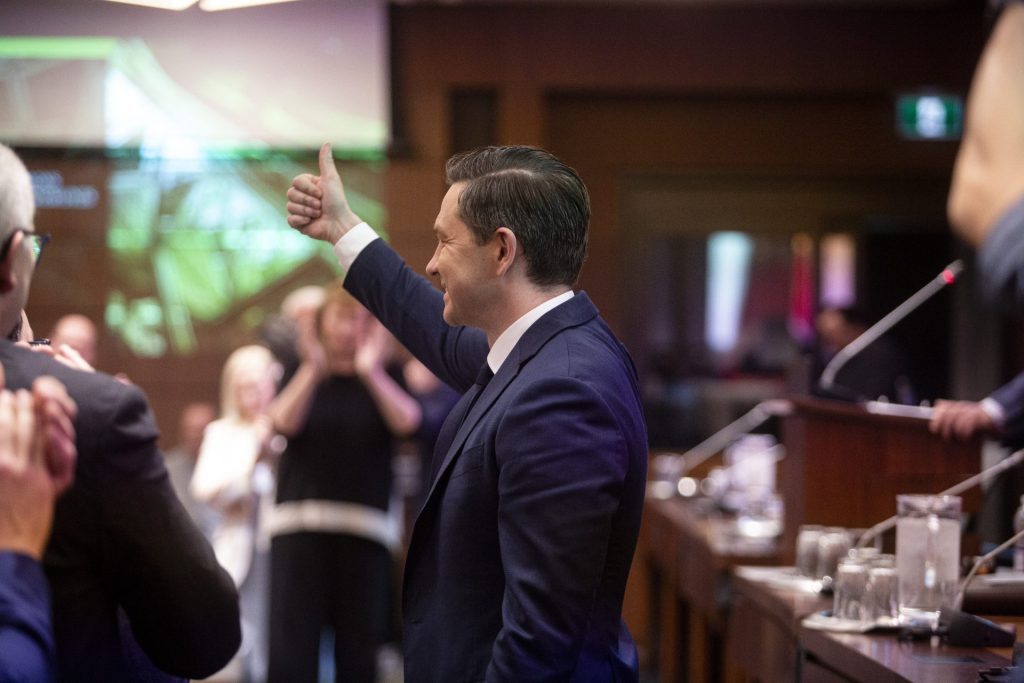
“And as I said in that column, one of my theories of politics is that winged candidates do better than non-winged candidates. That means they have to be left wing or right wing. They have to pick a lane, and they have to push it that helps mobilize their base, and it gives them a vision which they can sell to voters.”
I guess Carney, right now would be the exception to that.
“Well, he ran as a nationalist in that election. He did not run as a pragmatist. He didn’t run saying, ‘I’m going to try to get the best deal I can with Trump.’ He ran as, ‘I’m going to stand up for Canada. I’m going to fight this guy.’ So it wasn’t exactly a pragmatic message he was running during the election. He has adopted pragmatism since then. His rhetoric about Trump has sort of modified over the time. Right now he’s talking about, ‘I’m trying to get a deal. He’s not attacking Trump as he did during the election. So I think once you win, then you can become more of a pragmatic politician. But in order to win, you have to have some kind of ideological vision. You have to show people, ‘I have some values.’”
The card the Liberals usually play is that the Conservatives are mean and nasty [and their base] is far to the right of where most Canadians are. Now, they have Donald Trump as kind of a standing example of what that could look like. How do the Conservatives get past that without abandoning their base?
“They have to draw contrast, and they have to acknowledge the fact that maybe they’re not the most likable people in the world, right? Their message should be something like, ‘yeah, Pierre Poilievre might be an s.o.b. but that’s what we need right now. We need an s.o.b. to lead this country. And we know that you may not like everything Pierre Poilievre stands for, but he’s better than the alternative.’
“I think what they have to do is run what I call a rejectionist campaign. In other words, what they have to do is not convince Canadians to support the Conservatives, it’s to reject the Liberals. They have to demoralize the Liberals and say, ‘the Liberal guy’s incompetent. He doesn’t know what he’s doing. He’s hurting the economy. He’s ruining our future.’ In other words, Liberals will stay home. That’s what they have to do.
“Is that easy to do? No, it’s a tough campaign. But you know what? There are more Liberals than Conservatives in this country, so just out of mathematics the Liberals always have the advantage. The only way the Conservatives can win is to reduce the number of people who will vote Liberal, and they have to do that by sort of saying, ‘here’s all the bad things Carney’s doing. He doesn’t deserve your vote. We need a change. We need some tough leadership.’”
The Hill Times






 LICENSING
LICENSING PODCAST
PODCAST ALERTS
ALERTS